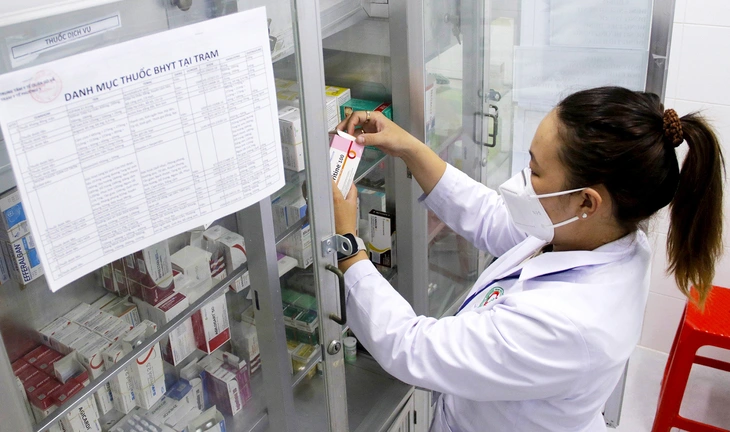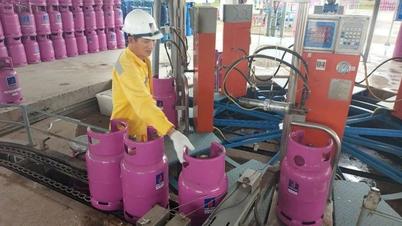
Medical staff give medicine to patients at a medical station in Ho Chi Minh City - Illustration photo: TIEN QUOC
After the article "Give medicine to patients every 2 months, don't hesitate anymore", there were many comments from readers. Most people expressed their agreement with the proposal to increase the time to provide medicine for chronic diseases.
Push the wheelchair to go for a follow-up visit to get medication according to the old prescription
Especially the elderly with chronic diseases such as blood pressure, diabetes, cardiovascular disease… are exhausted from having to line up from early morning every month, just to get the same old prescription as last month.
"I have high blood pressure, the prescription is the same, but every 21 days I have to go at 5:30 am for a check-up, but in fact I don't get any check-up!" - reader hoac**@yahoo.com.vn** shared.
A reader named Trong expressed: "Every month I go to the doctor to get a check-up and get medicine. They say it's a check-up, but in reality it's just to measure my blood pressure, nothing else, then the doctor gives me medicine for 28 days.
"It is advisable to give medicine for 60 or 90 days to patients with chronic diseases such as high blood pressure, diabetes..., to reduce costs for the hospital, for doctors and for patients."
Another reader said, "Elderly people have many illnesses, so each time they have to go to many departments.
But in reality, where I go for health insurance, these patients' records just need to be submitted, the medical staff will look at it on the computer and print out a prescription for the doctor to sign for proper procedure, but there is absolutely no examination at all.
Many people think "this proposal is so good, only old people can see it clearly".
"Every month, someone has to push the wheelchair and take my parents to the re-examination just to get the old medicine. I really hope that the provision of medicine every 2-3 months will be implemented soon!" - reader Truc earnestly said.
Many people support, why still hesitate?
Many readers also asked the question: "If the policy is so good, why hasn't it been widely implemented yet?"
Some opinions pointed out the significant barriers regarding treatment safety, the risk of drug waste, and regulations on the maximum cost of drug dispensing at one time.
"The hospital collects fees per visit, if they give a 2-month prescription, they will lose this source of income. So does the hospital want to do it or not?" - reader named Dung asked.
In addition, the possibility that a patient's condition may change during long-term medication use makes some doctors apprehensive.
"If the patient eats too much salt and his blood pressure spikes, the prescription from 2 months ago cannot be used and can even be dangerous" - reader Trong commented.
And one of the reasons given is that health insurance controls the cost of medicine for one dose.
"Therefore, we should review and resolve the issue of allowing long-term medication soon," reader Quang Tam wrote.
Some readers think that the question is not whether or not to prescribe long-term medication, but what conditions are needed to do it correctly and effectively?
Many opinions suggested specific solutions to propose that providing medication every 2 months could be implemented, such as only applying it to patients with stable treatment records and good compliance.
There is a remote monitoring system, combined with regular online check-ups. Patients can choose home delivery service, with additional charges if needed.
"There should be a mechanism for video call examination via Zalo, Facetime... to send medicine to home, especially for people who are single and have difficulty traveling. If there is a fee, it should also be for people to choose" - reader Mai suggested.
It is even possible to develop remote consultation doctors supported by artificial intelligence, to "keep the connection" between doctors and patients, ensuring that no emergency situation is missed.
Providing long-term medication not only reduces the burden on patients, but is also an opportunity for the health sector to reduce system load, optimize resources and move towards modern, flexible health care.
If there is synchronous coordination between Vietnam Social Security - Ministry of Health - hospitals and patients, this solution can completely become a turning point in chronic disease care in Vietnam.
Source: https://tuoitre.vn/nguoi-dan-than-xep-hang-de-duoc-cap-thuoc-theo-toa-cu-20250528131042119.htm



























































































Comment (0)